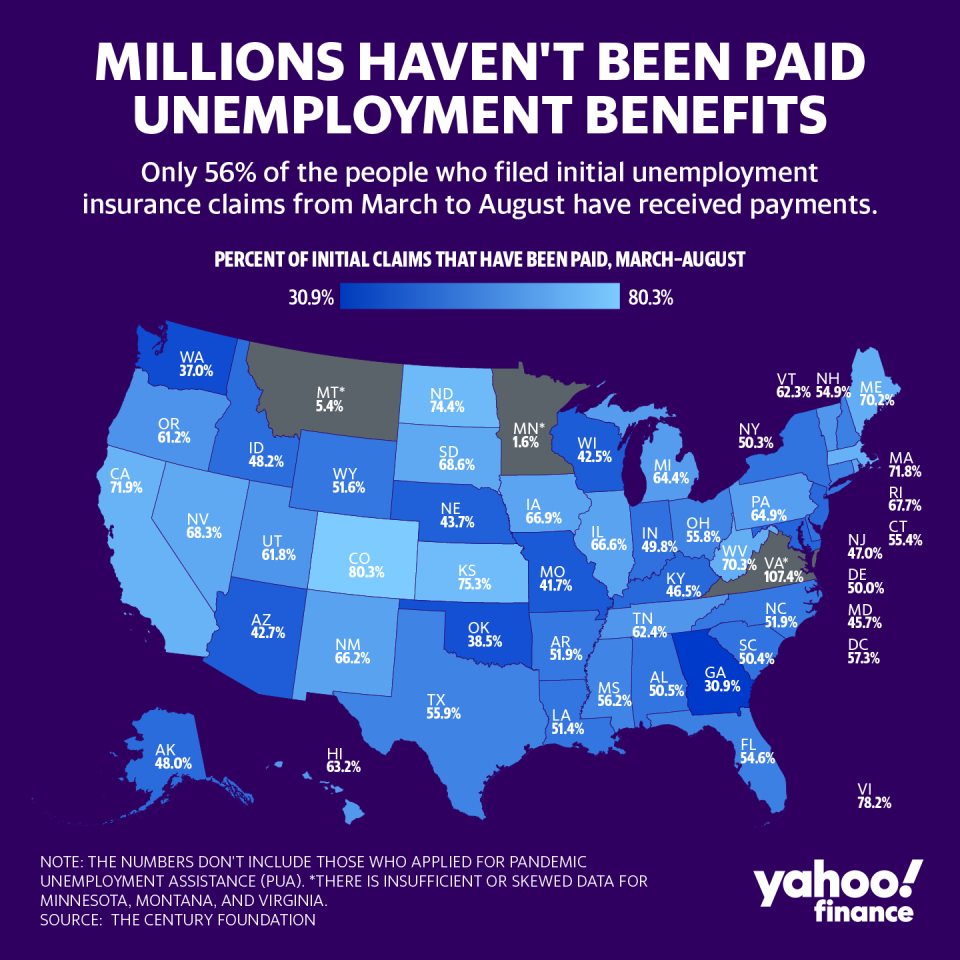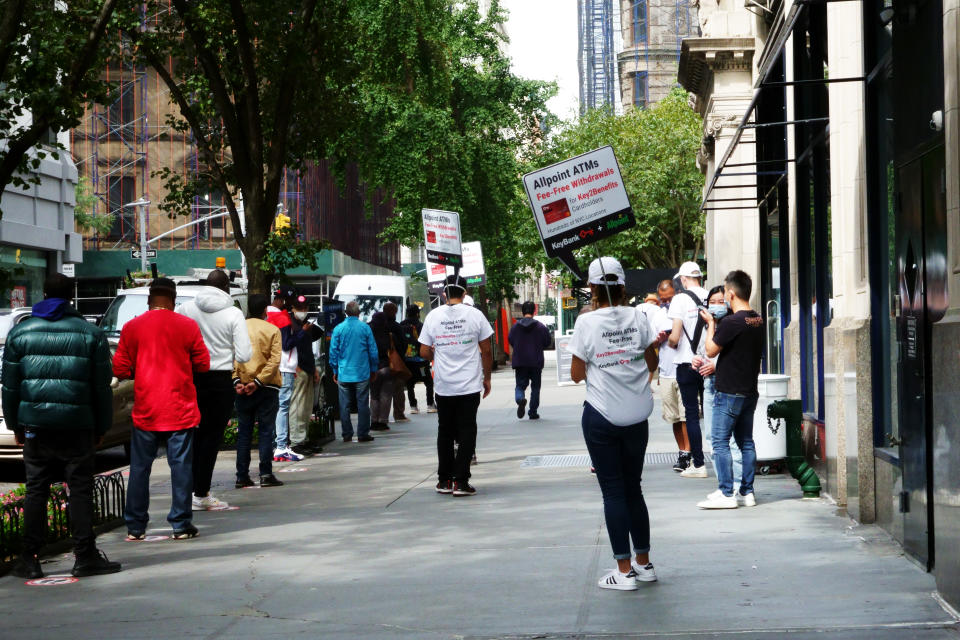Around 6 million Americans still haven't received unemployment benefits claimed in last six months
An unprecedented number of Americans have applied for unemployment insurance since March, but more than 2 in 5 haven’t received regular state benefits because of ineligibility or backlogs.
Of the 47.5 million initial claims filed between March and August 15, 21.1 million people didn't receive a benefit, an analysis by the Century Foundation, a left-leaning think tank, found. While most were ineligible for state benefits, around 6 million people — or 1 in 8 who originally applied — are still waiting for a final determination on their application.
“Our core state unemployment benefit program was not ready for this pandemic,” Andrew Stettner, an unemployment insurance expert and senior fellow at the Century Foundation told Yahoo Money. “They are still really struggling to keep up with the volume, and they're still dealing with the backlogs.”
The unemployment system has been overwhelmed by high volume applications resulting in wait times of between four to 16 weeks, according to a study by the National Conference on Citizenship. And six months later, many still face long waits.

‘Everyone else was forced to wait’
The rate of benefits being paid out has improved slightly since March and April when the weekly jobless claims reached its record high of nearly 7 million claims for the week ending March 28.
“Making the eligibility decision, it's something you definitely need a trained worker to do,” Stettner said. “They've been trying to pay the people that they could pay easily and disqualify the ones that get disqualified easily. Then everyone else was forced to wait.”
Aside from those waiting on a decision, another 15 million are workers who have been deemed ineligible, some of which may have moved on to the Pandemic Unemployment Assistance (PUA) program, designed for those who don’t typically qualify for state benefits. The report’s data doesn’t include people who applied for PUA.
Read more: Here’s what you need to know about unemployment benefits eligibility
While the most common reason for denial is not meeting the income threshold, many claims have been denied because they have been flagged as fraudulent, Stettner said. That could be because someone is trying to claim benefits using another person’s identity, but a mismatch in an applicant’s information or wrong response to a question in the application often could be to blame.
‘From very aggressive help to the unemployed to almost nothing’
States that have been more restrictive historically when it comes to paying unemployment benefits have been the ones that have struggled the most during the pandemic. For instance, Georgia, Washington, and Oklahoma have only paid 31%, 37%, and 39% — respectively — on the initial claims they received in the last six months.
“Before the pandemic, the main focus in these states was stopping people from committing fraud,” Stettner said. “That didn't go so well during this procedure when they got so many people in.”

Many whose claims were rejected for the regular state unemployment insurance program have turned to PUA. But that program is set to expire at the end of the year and won’t be extended unless Congress passes a stimulus deal. For the week ending October 17, over 9 million out-of-work Americans were still getting PUA benefits.
Read more: How long will your unemployment benefits last?
The expiration of PUA would be the third financial cliff jobless Americans faced: first, the expiration of the extra $600 in weekly unemployment benefits under the CARES Act in July and second, the expiration of the extra $300 under Lost Wages Assistance (LWA) program in September.
“You're really seeing a huge black-and-white change from very aggressive help to the unemployed, to almost nothing in a matter of months,” Stettner said. “It's just a really untimely and very disastrous situation to let these benefits expire the day after Christmas.”
Denitsa is a writer for Yahoo Finance and Cashay, a new personal finance website. Follow her on Twitter @denitsa_tsekova.
Read more:
Follow Yahoo Finance on Twitter, Facebook, Instagram, Flipboard, SmartNews, LinkedIn, YouTube, and Reddit.

 money
money 

